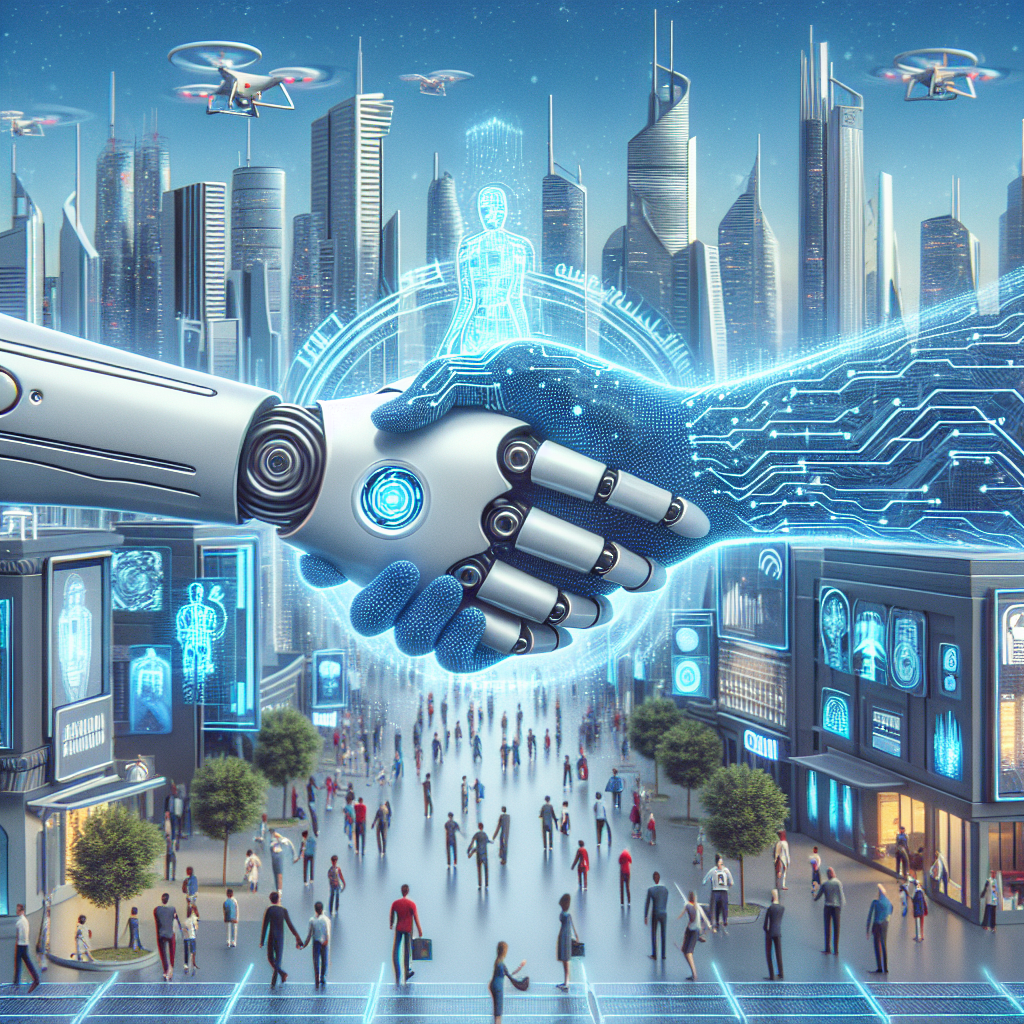Exploring the Possibilities of AGI: How it Will Shape the Future
Artificial General Intelligence, or AGI, is a concept that has captured the imagination of scientists, researchers, and futurists for decades. AGI refers to a form of artificial intelligence that possesses the ability to understand, learn, and apply knowledge across a wide range of tasks and domains – much like a human being. While current AI technologies excel at specific tasks, such as image recognition or natural language processing, they lack the general cognitive abilities that humans possess. AGI, on the other hand, promises to bridge this gap and revolutionize the way we interact with machines and computers.
The potential implications of AGI are vast and far-reaching, touching upon almost every aspect of human society and civilization. From healthcare to transportation, education to entertainment, AGI has the power to transform industries, reshape economies, and redefine the very nature of work and human existence. In this article, we will explore the possibilities of AGI and how it will shape the future of our world.
The Rise of AGI: From Science Fiction to Reality
The concept of AGI has its roots in science fiction, with popular culture often depicting superintelligent robots and computers that can outthink and outperform humans in every way. While such portrayals may seem far-fetched, the reality is that AGI is becoming increasingly plausible thanks to advances in machine learning, neural networks, and computational power. Researchers and engineers are making significant strides in developing algorithms and systems that mimic the cognitive abilities of the human brain, paving the way for AGI to become a reality in the near future.
One of the key challenges in achieving AGI lies in developing algorithms that can adapt and learn from data in a way that is similar to human cognition. Current AI systems are limited by their narrow focus and inability to generalize knowledge across different domains. AGI, on the other hand, would possess the capacity to transfer learning from one task to another, recognize patterns and relationships, and make decisions based on complex reasoning and intuition.
The potential applications of AGI are vast and diverse, ranging from autonomous vehicles and smart cities to personalized healthcare and virtual assistants. Imagine a world where machines can understand and respond to human emotions, predict and prevent diseases before they occur, and collaborate with humans in creative endeavors. AGI has the power to revolutionize industries, drive innovation, and enhance the quality of life for billions of people around the globe.
Implications of AGI on Society and Economy
The advent of AGI will have profound implications on society and the economy, reshaping the way we work, live, and interact with technology. On one hand, AGI has the potential to create new job opportunities, boost productivity, and drive economic growth. By automating routine tasks and augmenting human capabilities, AGI can enable us to focus on more creative and strategic endeavors, leading to higher levels of innovation and efficiency.
However, the rise of AGI also raises concerns about unemployment, income inequality, and ethical issues related to privacy and security. As machines become increasingly capable of performing tasks that were once reserved for humans, there is a risk that certain jobs and industries may become obsolete, leading to displacement and dislocation for workers. It is crucial for policymakers, businesses, and society as a whole to address these challenges proactively and ensure that the benefits of AGI are shared equitably among all stakeholders.
Moreover, the development and deployment of AGI raise ethical questions about the impact of AI on human rights, autonomy, and decision-making. How do we ensure that AGI systems are transparent, accountable, and aligned with human values? How do we prevent the misuse of AGI for malicious purposes, such as surveillance, manipulation, or discrimination? These are complex and urgent issues that require thoughtful consideration and collaborative action from governments, industry leaders, and the public.
FAQs about AGI
Q: What is the difference between AGI and narrow AI?
A: Narrow AI refers to AI systems that are designed to perform specific tasks or functions, such as speech recognition or chess playing. These systems are limited in scope and cannot generalize knowledge or adapt to new situations. AGI, on the other hand, aims to replicate the general cognitive abilities of human beings, allowing machines to learn, reason, and solve problems across a wide range of domains.
Q: When will AGI become a reality?
A: The timeline for achieving AGI is uncertain, with estimates ranging from the next decade to several decades. While significant progress has been made in AI research and development, there are still many technical and ethical challenges that need to be addressed before AGI can be realized.
Q: What are the potential benefits of AGI?
A: AGI has the potential to revolutionize industries, drive innovation, and enhance the quality of life for billions of people around the globe. From personalized healthcare to autonomous transportation, AGI can enable us to tackle complex challenges and unlock new opportunities for growth and progress.
Q: What are the risks of AGI?
A: The rise of AGI raises concerns about unemployment, income inequality, and ethical issues related to privacy and security. There is also a risk of misuse of AGI for malicious purposes, such as surveillance, manipulation, or discrimination. It is crucial for stakeholders to address these risks proactively and ensure that AGI is developed and deployed responsibly.
In conclusion, AGI has the potential to transform our world in ways we can only begin to imagine. From revolutionizing industries to redefining human-machine interactions, AGI promises to shape the future of our society and economy in profound ways. As we embark on this journey towards superintelligence, it is essential for us to navigate the opportunities and challenges of AGI with wisdom, foresight, and a commitment to ethical and inclusive innovation. The possibilities of AGI are endless – it is up to us to shape a future that is equitable, sustainable, and beneficial for all.

